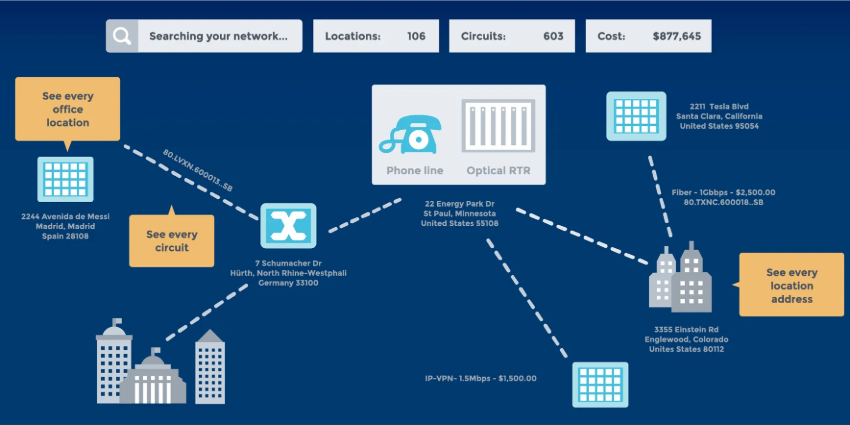Resonate enables companies to create agile strategy with apps, automation and analytics by utilising low-code solutions.
The low-code and no-code revolution allows companies to create applications that were previously only within the financial reach of big organisations.
The Microsoft Gold Partners and UCC experts, Resonate, can help companies deploy various Microsoft apps, automation and analytics solutions to improve outdated processes.
Harkirat Degun, Product Director at Resonate, said: “The introduction of low-code / no-code platforms has completely changed the game.
“Bespoke apps and tools are nothing new. Companies have been enjoying the benefits of these apps, such as tracking shift and schedule changes and ensuring their valuable data is securely stored but accessible within the organisation.
“What is different now is that more companies than ever can access them. This allows them to transform at a pace they were unable to in the past. Low-code / no-code platforms are levelling the playing field.”
What is the No-Code/Low-Code Revolution?
Both low-code and no-code platforms are making it easier than ever for companies to build applications to improve their internal company processes.
Low-code solutions are becoming increasingly useful in a post-pandemic world where the need for companies to be agile is even greater. A report by McKinsey & Company found that the pandemic has accelerated digital transformation by around seven years, which means companies unable to meet this rapid pace of change will be at a major disadvantage.
Low-code requires a basic understanding of programming, whereas no-code allows anyone, no matter their technical background, to create business applications using a drag-and-drop approach.
The major benefit of using low-code solutions is that it is much cheaper to create applications than paying for a programmer to build a bespoke app from scratch.
There is also a clear time saving to be had as IT teams can spend their time working on other projects rather than being tied into an app build.
Productivity is another area which can benefit from low-code applications. Employees can easily fill their workflows with tools and apps, automating some of the tasks they would have had to perform themselves.
Citizen developers are also able to create solutions much more quickly, as compared with a traditional development model.
According to a Gartner report, in three to five years, roughly 65% of coding for businesses will be done using low-code and no-code tools and systems supported by AI and bots.
The Microsoft Power Platform
Microsoft Power Platform is composed of five key products; Power Apps, Power Automate, Power BI, Power Virtual Agents and Power Pages, which are a set of low-code tools to build apps, workflows, data analytics, bots and business websites.
Using the Microsoft Power platform, companies can create both automation and management solutions easily and with scalability.
Power Automate enables companies to use low-code, drag-and-drop tools, plus hundreds of pre-built connectors, to automate repetitive tasks that hamper business performance.
Business apps can help to increase productivity by reducing repetitive tasks for employees, such as syncing data to the cloud or notifying colleagues of document updates.
Staff management applications can replace human resource management processes, including onboarding tasks, holiday requests, and shift changes.
Customer experience solutions can also be implemented to help with call attendant management and queueing workflows, for example.
There is also a great deal of flexibility to be gained from entering the Microsoft platform, as it allows businesses to connect apps and processes to insights via Microsoft Graph and Power BI.
Further flexibility comes through the platform’s ability to integrate with third-party applications.
How Can Resonate Add Value?
As a Microsoft Gold partner, Resonate dedicates itself to understanding and utilising the Microsoft ecosystem, including the Power platform.
Resonate can simplify the deployment process for companies and help them to see all the practical applications of the software as well as provide development capability.
The company says it is also able to support with setting up a centre of excellence which provides the tools and services to promote the citizen developer strategy within an organisation. The centre of excellence provides services to support setup, governance, operation, and improvement of low-code / no-code development using the Power Platform.
Beyond this, Resonate also offers applications which are built using the Microsoft Power Platform. The Resonate Teams Voice Management solution transforms the way employees access and leverage voice within Microsoft Teams. The tool comprises two elements: an automated request and approval process to assign phone numbers and policies and a PowerApp for IT admins to save time handling PSTN voice requests and helps reduce license costs by showing which licences aren’t being used.
The Resonate Call Queue and Auto Attendant Manager enables non-technical employees in organisations to manage their call routing so business change can be quickly and easily delivered and also boosts reporting visibility and time to information. Without the tool these jobs can only be done by IT admin staff with elevated privileges.
Resonate also offers Power BI driven Teams Voice Quality Insights focussed on highlighting voice Quality and usage statistics.
These applications can provide a lot of benefits for businesses and they are available to integrate into the Microsoft Teams application.
Harkirat Degun, Product Director at Resonate, spoke about its low-code offering: “The value of the Microsoft Power platform is hard to deny.
“It has helped businesses of all sizes to improve their processes, saving them time and money, and it’s enabled them to remain agile in a fast-changing world. Simply put, it has made them stronger and more efficient businesses.
“What we do is take that a step further. Microsoft’s Power Platform has made things easier for companies. It has made these solutions viable, but we can take even more of the load off their shoulders.
“We are really doubling down on what the Power Platform can do, and we are helping from all angles. From bespoke development to promoting citizen developer strategy through centre of excellence through to offering our own applications, providing even more productivity enhancements for less.”
If you are interested in finding out more about Apps, Automation and Analytics you can download Resonate’s eBook here.







